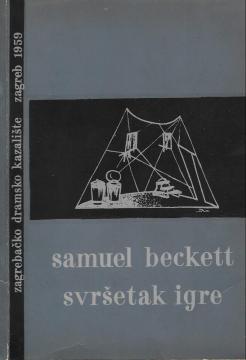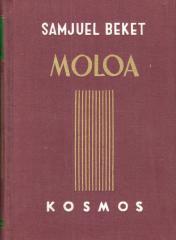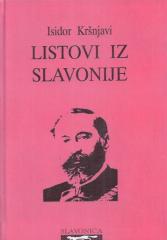
Svršetak igre
A play by Samuel Beckett, one of the key authors of the theater of the absurd, premiered in 1957. This edition was printed on the occasion of the premiere of the play at the Zagreb Drama Theater on October 17, 1958.
This one-act play, written in a minimalist style, explores the meaninglessness of existence, human impotence and the inevitability of death. The action of the drama takes place in a cramped, run-down bunker-like room, where four characters live in isolation and hopelessness. The main character, Ham, is blind and immobile, sitting in a wheelchair as a tyrannical master of space. His servant, Clov, is the only one who is mobile, but lame and unable to leave the room. In two container-like bins live Ham's parents, Neg and Nell, who are bereft of legs and represent the remnants of a former life.
Ham and Clov repeat nonsensical rituals every day, while Ham dictates and questions his past stories. Their relationship is based on addiction and hatred — Clov can't leave, and Ham can't live without him. Neg and Nell, half-dead and forgotten, occasionally make ironic comments about their fate, reminding of irreversible transience.
Clow keeps talking about leaving, but never manages to make it happen. In the final scene, Clow gets dressed and prepares to leave, but pauses, while Hamm remains motionless, ending the game with a nonsensical monologue. The drama ends in an atmosphere of silence and hopelessness, leaving the audience with a sense of emptiness.
"Game over" symbolizes the cyclical nature of human suffering and the impossibility of escape from a hopeless situation. The characters represent decadence and the absurdity of existence, while Hamm and Clough personify interdependence in a world where communication is all but destroyed. The bunker becomes a metaphor for confinement and isolation, while the meaninglessness of human life is outlined through the play of powerlessness and routine.
Beckett's pessimistic vision of the world and stripped-down dialogues indicate a loss of hope and a constant struggle with existential despair.
Nema primjeraka u ponudi
Poslednji primjerak je nedavno prodan.





